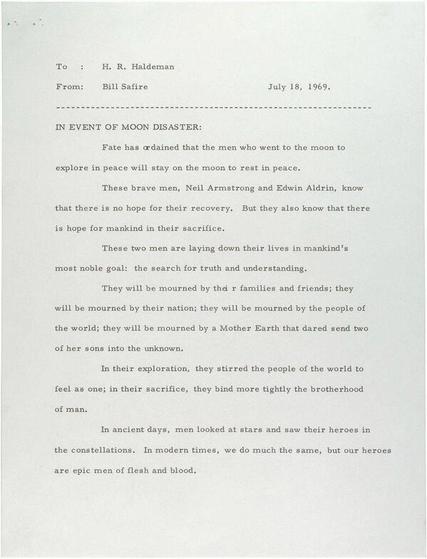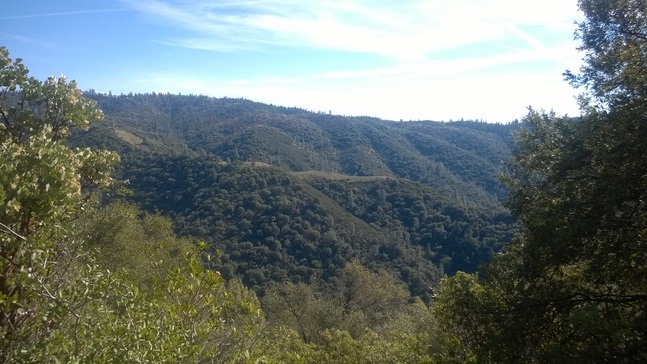And what are we up to today?
|
I just bought this: How to Write a Book Proposal.
The story of how I got my agent is pretty unusual. I was straight out of my Masters degree, and feeling for the first time that actually selling what I wanted to write was possible. (I went abroad and into some niiiiice debt for my degree. I love ya, America, but sometimes your educational system gets really snobby about what is acceptable reading fodder. The Great American Novel is not actually what everyone wants to read, ye ken? It's not actually the highest selling genre either, and it doesn't make you an amazing writer just because you wrote it. Thanks for brainwashing and demoralizing writer-hopefuls for years, but it's time to end that shit. You know how people always go, "But what are you going to DO with your writing degree?" It's time we all start answering, "Well, I am going to WRITE." /rocketscience) ANYWAY. I first spoke to my agent because I was suddenly optimistic! OMG, you mean people will actually buy my romance and horror? I HAVE SO MANY QUESTIONS. I turned to a friend and writing buddy, Diana Copland, and with much apology and profuse promises that I wouldn't poach her agent, I asked Diana if she could get me in touch with said agent so I could grill her about the publishing industry. Saritza Hernandez, kind soul that she is, let me yammer at her for a good hour with all my "HOW" and "WHATSIT" and "WHEN" and "WHEREFORE" and "I LIKE WRITING SLASH" and "AND SOMETIMES ALSO THE HORROR KIND". She answered everything in great detail, thereby making me even more optimistic. She put it within reach, which for years I had been taught to believe was a pipe dream. She asked what I was working on. I said I had a second-person POV male/male romance short story. She said, "Diana highly recommends your writing." I blubbered around a bit and probably made little sense but I know I said thank you. She said, "I'm not accepting submissions right now, but why don't you send me the story anyway?" Look, I get it. I get that I did not match up with my agent in the usual way. And I REALLY get it now, when I find that I have no experience writing a pitch. Point in fact, I'm about to start pitching my next project as a thriller series, and I'm like, shitshitshit, synopsis, is this a good synopsis? What the hell do you mean, 1-2 pages? Effing log lines, IT'S ONLY ONE LINE HOW CAN IT BE STOMPING ON MY HEAD LIKE GODZILLA? But I like all my characters, I can't just describe two! How does this make no sense to you?? It makes perfect sense, you just have to read the novel!! Hence, the purchase. My match with my agent was primarily through networking. A very important part of marketing, that, and one that I still have to practice. But I unknowingly sidestepped so many horror stories: authors who went through four agents, authors whose book deals folded right at publishing, authors who got scammed out of their burgeoning baby manuscripts. Looking back, it's frightening: I never saw what I was being spared. Complete fool's luck. I count myself extremely lucky and privileged to have found Saritza the way I did. Now I have to pick up the slack of my good fortune. Buckle down. Learn a thing or sixty. But hey, maybe this research will balance out the file the NSA has, documenting all my inquiries into scalpels, landmines, plagues, psychoses, handguns, the FDA, and the city of San Francisco. >_>
0 Comments
12 Hikes in 12 Weeks: Assassin's Trail2/22/2015 Yes. Yes, you read that right. Remember how I said I like trails with interesting names?  Hiking on this trail actually felt a little... How shall I put this... Inappropriate? Because the name is not just being clever. The Assassin's Trail is named so because it is the site of two separate murders, one in 1973 and one in 2003. The more recent one has been solved, but the other is a cold case. The trail is located near Colfax, California, and I shall leave the detail discovery to those who are interested in their own research. Describing the deaths here feels wrong, like I imagine visiting Dorothea Puente's house as a tourist hotspot would feel, and that, like these deaths, didn't happen very long ago. My point is, people affected by these events are still living. I am little bit disgusted with myself for hiking a trail specifically because of the grotesque nature of what happened there. Then again, I did do the Jack the Ripper tour of Whitechapel multiple times. I'm not entirely sure I have a leg to stand on. As a writer, I absolutely understand the thrill of dramatizing the demise of fictional people. As a history buff, I have a profound interest in the events of our past and the ways they led to or sprang from each other. I had a distinctly morbid fascination with the Black Death for years; ask me about it, I can still go on for some time with a manic glint in my eye about what happened in the 1340s and 50s. Ten years ago, I would have been pretty comfortable with my interest in this trail, and not concerned with the justification of traveling it. But people get older. They gain life experience. Viewpoints shift. In my case, the shift was a little shocking to me: I have developed a problem with the aggrandizement of actual traumatic events for the purpose of entertainment. This isn't to say I have no more fascination. I'm human; of course the terrifying fascinates and repulses me. But using it as entertainment also makes me distinctly uncomfortable in a way it never used to.  I'll admit it: this trail felt ominous. If I didn't know the history, I probably would not have thought so. Shows how much colors our interpretations. The trail-head is unmarked, one of five in a field that has seen a good deal of firebreaking and lumber work, and the least maintained of the group. We used a compass to verify our path, and were helped along by the sudden arrival of a doe. She trotted right up out of the mouth of the Assassin's Trail and veered off before I could get a picture, vanishing up the hill. Other than that, the trail was deserted. We didn't see anyone until we were on our way back, on a path that was, frankly, not fitting the written description we were working with as well as we liked. We passed a gate onto private property with several No Trespassing signs attached (and unattached, lying on the ground). I enjoy horror writing and reading, and I'm pretty sure it was because of the backstory, but the trail had a Mood. Tons of trees allowing for only one really good view of the valley below, a river valley that was the site of my New Year's Day hike. Apparently, this trail will take you down to Codfish Falls should you follow it long enough. We didn't. It was a long way down. Life on the Flip-Side7/6/2014  In early June, Google displayed archived documents from the 1944 D-Day attack on the Normandy Coast. Among these pictures, letters, and papers was a similar document to this one, handwritten by Eisenhower, detailing his apology, explanation, and acceptance of blame in the event the Allied attack failed. My love for history and my understanding of how different things might well be aside, both that apology and this statement concerning Apollo 11 give me pause on the writerly front. I have a dear friend who states that when she comes to a crucial scene in a manuscript, she discards not just the first option she pens, or the second, but sometimes the third as well and ultimately goes with the fourth. Keep in mind, writing is not a snap of the fingers for her; I have long been a lucky first reader of her work, and I can tell you she agonizes over the majority of her scenes, and she attacks description and characterization with the long considered zeal of a perfectionist. Ergo, this abandonment of carefully crafted prose two, sometimes three times, is not a short or simple process. It’s also a marvelous, and difficult, writing skill. By discarding what comes first and most naturally, she forces herself to think past three very important things: 1) The Obvious. The clichéd, the stereotypical, the been-there-done-that. Maybe it feels right to you because it’s right, but maybe it’s just because you’ve seen it somewhere before. You’ve watched another scene turn along these lines, you’ve heard other voices speak these words. Natural progression is good, but beware of the commonplace. 2) The First Option. By working past what pops into mind first, you explore other ways that a scene could result. You begin pushing against the walls of the box, sticking your fingers through the air holes, doubling your list of “what ifs.” If a scene refuses to go anywhere, perhaps the best bet to find that hinge moment and swing things another way. 3) The 2-D Character. Maybe this is what a character would do first, but is it what a character would do best? Taking a look at what else might happen, not from the authorial point of view but rather from the character’s point of view, can give you and your readers a ton of insight into this character that otherwise may never have surfaced. The character might still emerge victorious and alive from that moon landing, but the fact that he or she prepared for what might happen on the other end of the spectrum can be extremely instructive. Photo borrowed from this tweet. *** Random Writing Exercise: Take a particular scene (bonus points if it’s one you are stuck on!) and write in the exact opposite direction from the one you’d planned. See where it goes. It may take you nowhere. It may give you insight into your characters or plot that you were missing. It may throw open the next door and reveal to you exactly how to rampage over the writer’s block into the meat of your story. The Comment Hall of Fame5/7/2014 Let's get this going right.
The Hall of Fame: responses to the news about One Door Closes and subscribing to the newsletter: Best Use of Imagery "My lady, I humbly accept your invitation with the most profound sincerity and gratitude. Madam author, I shall await your future works of literature with much titillating anticipation, like that of a bull moose in the early whisper of spring awaiting a female. Or that of a Wal-Mart shopper on payday waiting for his meth dealer to call him back. Magnanimously, Your loyal supporter" Best Troll "Dear pretentious author aka Mz. Lindsey, I stumbled upon your site by chance, or maybe just bad luck, and I just have to say this: you are my new least favorite author. I can't wait to send you hate letter after hate letter detailing everything that I think is wrong with your books and your website. The appalling forest scene (who needs trees, anyway?) and the egregious cursive. My eyes are watering as I type this. And no, to answer your dismal question, I do NOT want to be a part of your "newsletter." Sincerely, your least favorite fan" (J, you are my favorite troll... ^_^) Win a spot in the Hall of Fame! Comment below, or here. Title selection: check and check!12/8/2013 Ladies and gents, it's official: My novella is titled One Door Closes, the first book in the Secrets of Neverwood series.
It's very nice indeed to have this aspect settled! Naturally, the only thing to do now is to post the list of reject titles for the three books in the series. Ahem. (This first list taken from textual samples of Book One) "Intermittent Groaning" "Some Inroad Somewhere" "Geese Passing Overhead" "Rebalanced and Replaced" "Frank Lloyd Wright It Up!" "Nameless Male Coworker" "Experimenting" "Feeding the Horde" "Plumbing Upgrades" "An Electrician Upstairs and a Carpenter Out Back" (you know, I'd really like to offer an innuendo here. Really.) "Baby's First Loan" "The Bitter Mouthful" (Oh my GOD.) "Small Town Mentality" "All the Dirty Laundry" "Just a Boy on a Porch" "This Stupid Town" "A Giant Hole" (Yes. We went there. Of course.) "The Spurs of his Pelvis" (No, seriously. I think this one will work.) "A Steady Knocking" "Bags of Carrots" (and because I am just crammed full of BS on a good day...) "The House on Audrey Corner" "When Calvin Met Danny" "Getting to Know You" "The Lost Finger" (I might have just spit my drink all over my computer) "The Cosigners" "A Funny Thing Happened on the Way to the Financial Institution" "House on Haunted Hill: Mama's Revenge" (starring Jessica Chastain, obviously) "The House That Was (Re)Possessed" "American Horror Story: By Blood or By Right" (Season 4) "Eric Files a Lawsuit" "Unhappy Teenagers (and Other Tragedies)" "How Danny Got His Yoo-Hoo Back" ...and of course... "Calvin Honestly Doesn't Know What to Do With That" Out on a limb1/12/2013 Recently I headed back to Minnesota to visit my dad's family in the immediate wake of my grandmother's death. It was, as these things are, a last minute purchase of plane tickets and an abrupt change in plans, and we arrived to pristine but extremely cold weather: the lakes in the Twin Cities area and much of the St. Croix River had frozen over and were covered in snow, like glistering meadows of white sand. Fishing huts with Christmas lights and cars parked out on the lakes will tell you just how thick that ice was and how firmly below freezing the temperature remained.
It was not only a trip back to the reality of dressing in layers daily and taking that five minutes to peel all one's outerwear off when sitting down in a restaurant for lunch. It was also getting to see my dad and all his siblings under the same roof with their father for the first time in a while. We're a bit spread out: Texas, Oregon, California, Minnesota, and sometimes Florida. (Much like my mother's side, which ranges through Michigan, Ohio, California, and the south.) It's a ways to travel and though we do see each other, it isn't terribly often. It's the reality I grew up with. I have friends with extended family a block away from their childhood homes, and it's always been a blink-worthy moment for me, imagining being able to ride my bike around the corner or over to the next neighborhood to see my cousins. And while this particular meeting was for a sad reason, it was very good to see my uncles and aunts, my step-uncles and step-aunts, great uncle and aunt, cousin and step-cousins, and a whole side of my grandmother's extended family that I'd never met before. (My grandmother is technically my step-grandmother, but as a child, there was no distinction for me.) It was especially good to see my grandfather, who is spry and anxious to get back to tennis again after a car accident a little while back. One night, we sat in my aunt and uncle's kitchen and were regaled for over an hour by the story of how they got together, a story I'd never heard. My cousin was clearly a veteran of this story, but save for my grandfather who had gone to bed, we were all in one room—at the kitchen table, the island, the computer desk, the cushioned chairs by the window—and we were listening to a history of the people in my family. It’s a history that never directly affected me, but it shaped them, and my two cousins, my father and his siblings. It dealt with how their careers brought them in contact, and it was entwined with stories I already knew, about my dad’s mother (who passed away years ago), and my dad’s grandparents, uncles and aunts. It made me think about how my own parents got together, and how everyone with these different lives had been drawn back home to be together again. One family line, all in one room. It’s a little amazing, if you sit back and think about it, as I did. The morning of the day we left, my father and I got in the car and drove over to the neighborhoods where he’d grown up. There were multiple houses to see. My dad took me down the paper route he’d had with his brother, past the homes of kids they’d played with, the schools they’d all attended. He told me about how people viewed the second neighborhood in general, the stereotypes they had for the individuals who hailed from there. He showed me dead ends that were no longer dead ends, schools that had come and gone, and reminisced about being kids out at recess, all dressed in ski pants and sliding down icy slopes without sleds. We pondered the existence of new streets, new schools, new houses. I pondered what it would be like taking my future children to the neighborhoods where I grew up. There’s such a backstory here, a thousand details little and big, faces remembered and lives lived heartily. Older people who were young and young people who will one day be old with their own stories. Hell, we’ve already got stories, some that many don’t hear about due to mere circumstance. It’s a rich, undiscovered world well worthy of exploration. ~~ Not So Random Writing Exercise: Explore a character’s family tree. Who are the people who came before? The people that came along at the same time? The people they married or didn’t marry, and the people who interacted with them? If there aren’t any people, why? Did they never exist or have they already gone? Sit them all around a kitchen table and tell them the stories of their lives. Wrangling the NaNo bot11/27/2012 Tis November, NaNoWriMo month! (That's National Novel Writing Month, wherein writers are challenged to write 50,000 words in 30 days.) In fact, it is the end of November, when most people are either scrambling diligently to reach their quota or sitting back and enjoying that gorgeous word count table and the beautiful "WINNER!" bars next to their names.
This would have been my third year in a row participating. I cannot stress enough what a great idea NaNo is, because above all else, it gets people writing. It certainly did for me. It loosens up those cords binding the words in, shutting down voices. You know, those barriers that say things like, "That'll never work, it doesn't make sense, don't even bother starting." NaNo brings people together in support and friendly competition. And it results in a WHOLE LOT OF FIRST DRAFTS. The first year I did it, it was a revelation. What came out of it was 50K of culture, scenery and characters set in the realm of death omens, namely the Black Dog and the souls designated to fill the role of harbinger for the rest of the world. I haven't done too much with it since, but I am so proud of it, and it's a universe I am chomping at the bit to explore in more detail. The second year, while more prolific (I wrote 60K with time to spare), was also disturbingly sobering. I wrote a coming of age tale about a gay boy and the best friend he's secretly in love with, driving from California to Yellowstone National Park the summer before college. The story, drawn heavily from my own trip to Yellowstone that summer, was in and of itself not the problem. It came out (no pun intended) very readily, and I liked my characters and where they went, in the real world as well as metaphorically. The reason I decided not to do NaNo a third time in a row came out of this second try, however: As freeing as it is to just write and write and write, no self-editing, no redrafting, just hit that 50,000 mark and then you are allowed to look at it a second time... Such a method ended up being detrimental to my particular writing style. I found myself tossing down as many words as I could in order to reach my daily quota. Never mind if those words actually had a real place or purpose in the story. Never mind if they were just restatements of the adjectives that came before. The stressful part turned out not to be meeting the word count so much as coming back later and realizing that, had I been allowed to write in my normal manner, I would not be back chopping out a third of what I'd spent a month putting down. I know we are taught not to self-edit as we write, but frankly, it works for me. Only rarely does it stopper my writing. It does not slow my process but rather enhances it: I go back and reread what I've already written in order to glean more knowledge about the places I have yet to go, the scenes I am gearing up to write. In this sense, it helps that I do not tend to write a story's scenes in order. I will write the beginning, then something two-thirds of the way through, then the end, then right after the beginning, then the middle, then... You get the idea. If it comes into my head, I get it down before I forget it, regardless of where it is slated to end up in the story's timeline. Ultimately this method assists me in keeping themes arcing strongly and teaches me more about my characters and the world they live in. One would think this method would lend itself well to NaNo; when there is no rule concerning writing in order, a person can just go crazy. Fly. Erupt with a tide of storytelling. Not true. For me, it turned into another way to not actually write. And by that I mean "write substance". This year, I bowed out. Next year I may come back to NaNo, because goodness knows it's a wonderful way to flood the brain with ideas. Get things moving. This November, though, I needed time to work as I work best: producing something ultimately less wordy but that I can nod at and call quality. How are you all finding NaNo? Does it work for you? ~~ Random Writing Exercise: Try another method of writing. If you always write consecutive scenes, try writing the ending of your story first. If you tend to write all over the place (like me), trying writing a story in order, start to finish. If you edit as you go, try just writing straight up (no editing until you're done) and vice versa. Challenge yourself, just for this one story. How does this switch inform your style of choice? How does it cramp said style? (I know a lot of writers with a lot of different writing styles. We can always stand to learn from the styles of others, whether they work for us or not.) A couple thoughts9/22/2012 Don't ever let someone make you feel like you don't have something to offer. The reverse of this is called "respect".
Another thing: If you ever feel completely out of your depth in terms of something you really want to do, RESEARCH. The more you know, the less frightening and unattainable it is. (I feel this is somewhat… loaded subject matter, so please bear with me as I try my best to be succinct and not to offend.)
When I saw The Dark Knight Rises, it was with a far different mindset than I had expected in the weeks leading up to the release. The terrible opening night events at the theater in Colorado immediately cast a pall over the entire experience, affecting everything from how I spoke about Batman (who is my favorite superhero) to others, to how I read about the film in the media, to how I interpreted the previous film The Dark Knight, to how I dressed for my viewing (I was initially going to wear a Joker-esque outfit I’d been happily compiling for a couple weeks, and ultimately scrapped the idea). As the opening night draws further off in the movie’s run, I find myself pondering other worrying questions. When a person goes into a theater on the eve of a film about such an iconic pop culture character as Batman and massacres prospective viewers, undoubtedly a connection will be formulated between the attack and the franchise it seems to revolve around. To add to that, the attacker in question deems himself “the Joker” to police in the aftermath. We the public have no way of knowing if he actually thinks he’s the Joker or if it’s a play for attention, and perhaps we will never know. But the connection has been made regardless, and conclusions, however on or off target, are being drawn. The Joker of Christopher Nolan’s film The Dark Knight is, to me, the quintessential Joker: Heath Ledger’s performance embodied the depravity and the inconceivable psychosis of a villain born out of such a world as the Dark Knight comic line offers. He is fascinating because of how he both engages and repulses the viewer/reader in equal measures. The filmic reaction to him by the mob bosses of Gotham is the artistic portrayal of everything he is meant to incite in the real world viewer: amazement, fear, even amusement… for a time. And then the gradual realization that the mob bosses have no idea how to deal with the monster they have released, and no manner of coming up with a solution, as he exists on a completely separate level from the “evil” they are familiar with. They are out of their depth here, and so are most viewers of the film. As such, the Joker is a character that I, a viewer, recognize as insane— a character whose crafting I admire and am in awe of from a writing standpoint— but a character I do not wish to emulate. Clearly, that is not the case for everyone. Blaming the character of the Joker and all his creators seems to be the next logical step, and probably is for many people. For my part, I believe firmly that the nature/nurture arguments, while certainly valid points of view, only go so far, and that people ultimately make their own choices concerning what they do in response to stimuli from the outside world. I recognize there is a great deal of gray area as well: mental faculties, mental health, and basic perception of the world vary from person to person, often due to things none of us can control. But it is extremely gut-churning to contemplate standing in front of someone who has lost as much as the friends and families of the Colorado victims, and making that case aloud. Who am I to make a call either way? Who am I to speak at all? And what does the creator of a character like the Joker do when something like this happens? The above statements are not at all meant as judgments. Each person must figure out the answers to these questions him or herself. But as a writer, it definitely makes me pause on another level, because I create stories. I create characters that I hope people will read and enjoy, hate and love, empathize with and push as far away as they possibly can. I especially create characters that I hope will evoke an uncomfortable, thought-provoking mix of the above reactions. At this very moment, the writing project I’m working on involves a number of psychotic characters, and while I’m pretty sure my approach does not push an agenda of support for their abominable actions… neither did Nolan’s Batman. It’s pretty clear who the villain is in The Dark Knight, and while Batman may share some crucial similarities in terms of world view, the ultimate difference lies in the fact that even Batman could not stoop to the Joker’s lowest level, to Two-Face’s lowest level, to Ra’s al Ghul’s lowest level, and god knows they all tried as hard as they could to shove him down there. In the face of something like this, when a creator’s character is (on the surface) taken as the basis for such an act, how does the creator respond? I ask not to pass judgment, but to bring up a question I struggle with myself. How can we artists bring these characters to life when we know there is the possibility of such a horrible result? Can you, readers, say you’ve never read a book that got blamed for something and thought, “Yeah, I can see that”? Can you, writers, honestly say you have never looked at a character you are creating and thought, “I should just stop”? Again, to make it clear: I am not saying we should stop, or that we are ultimately responsible for the interpretations formed by consumers. I’m saying the question haunts. So then the question becomes: What are we meant to take away from characters like the Joker? It will be different for everyone depending on their experiences, their emotional states, their plans for the future. I certainly do not create my psychotic characters with the intention that one day someone will jump on that bandwagon in the real world. I personally feel the viewer is meant to be amazed and intrigued by villains like the Joker, to fear them in a manner that involves a certain amount of awe, but to decide in the end that actually being that person is not the way to go. But what are authorial intentions anyway? I know from my Lit Theory classes (particularly the study of Shakespeare) that whatever the author intended is regarded, at best, as marginally important once the product makes its way out to the public. Rampant analysis ensues on multiple fronts, often along threads the author never once considered. The same must be assumed for creators of movies and, more generally, the characters that populate all pieces of art. To complicate the situation even further, as artists, by definition we strive specifically to influence consumers with our work. The flip side is that, try as we might, there is no possible way to dictate the interpretation of said consumer. To say that art in all its forms has a responsibility to toe a line (to keep from planting harmful ideas, to avoid introducing conceptual violence to minds that may be ripe for influence) becomes ludicrous when it is clear that art echoes the world around us. How can it possibly do both at the same time? Even the best of censorship intentions on this front gives me images of 1984 and Equilibrium, realities that look good at first but simply cannot stand while taking into account individual human rights. We know what the public does for pop culture. What duty does pop culture have to the public? Is there a duty at all? Is there a line of responsibility drawn somewhere, or is that consideration just as far out of its depth? Your rules for storytelling?6/17/2012 I was just looking at this article, The 22 Rules of Storytelling, and it got me thinking...
What are your rules, writers? What are your rules, readers? I think it would be a good exercise to get a cross-pollination here; as per rule #2 on the linked list, writers should be aware of what their audience is thinking, and readers should be aware of what writers are working with. One of my personal rules is to make any dialogue realistic. I mean to the point of speaking it aloud to yourself while wandering down the street like you're (housing other personalities in your braincase) on a Bluetooth. Speak it aloud to make sure it sounds natural. Like something someone would actually say. Another rule is to be brave with your characters. Figure out what they'd actually do, and then commit to it full-throttle. For instance, if Batman would kill a person in a fit of vengeful anger, don't pussyfoot around it and give him a convenient pylon that falls on the person's head and therefore keeps the Caped Crusader from being a murderer. What would 28 Days Later have been like if Jim had not committed to his end-of-the-movie actions? Tell me your rules! ^_^ AuthorHello! My name is Grete and welcome to my writing blog! I am a writer or romance, horror, and general observation Archives
July 2020
Categories
All
|




 RSS Feed
RSS Feed